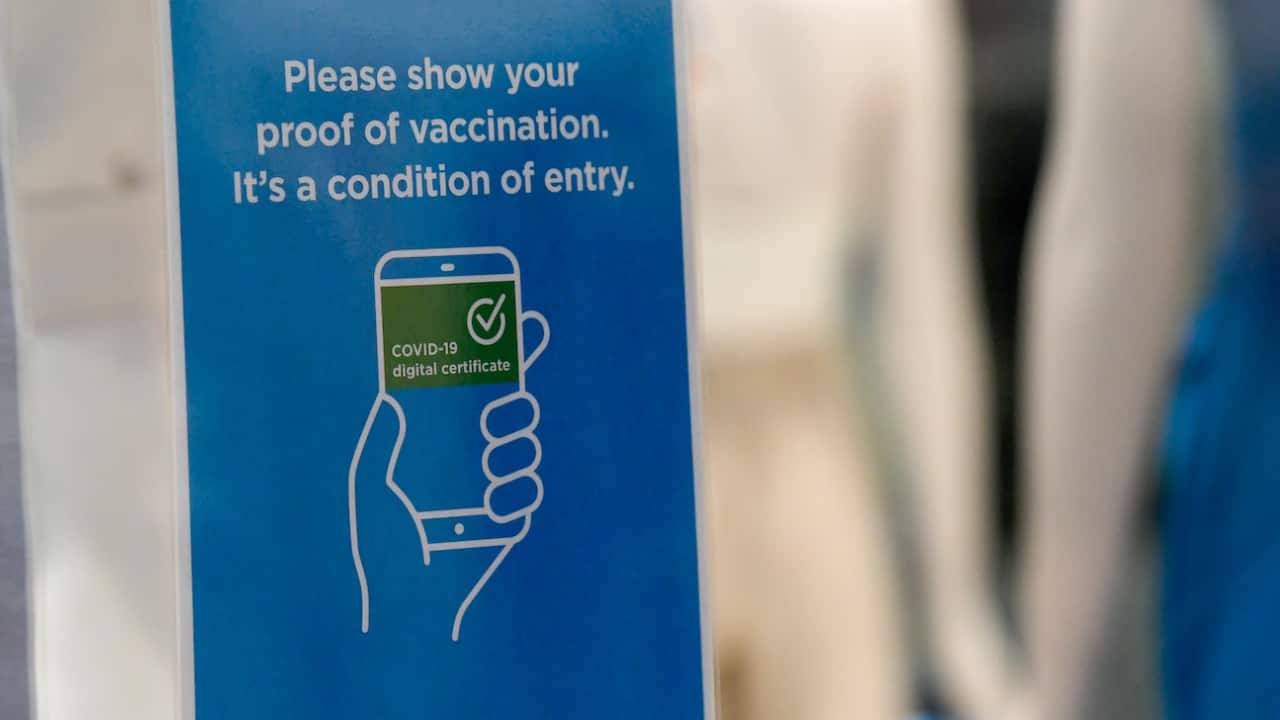Twenty-five-year-old Sydneysider Louisa* has just recovered from COVID-19 and was released from home quarantine by NSW Health earlier this month.
But despite getting the all-clear - and feeling fully recovered - the repercussions of having had the virus linger.
“What kind of surprised me is that sometimes and in some situations, it's humorous, and you can kind of joke about it with people that you're friends with and stuff. But in other situations, it gets a bit frustrating. I think that people are still a bit scared or a bit apprehensive when you tell them that you've had COVID,” she said.
“They kind of think that you still have it right then and there, despite the fact that no one in their right mind would go outside still infectious."
And COVID-19 survivors aren't just facing the stigma associated with the virus.
They must also navigate an array of regulatory hurdles and safety measures as they re-enter the 'vaccinated economy'.
For example, NSW Health does not recommend routine virus testing for at least six months after recovering, because people can still return a positive result despite no longer being infectious.
But Louisa is required to complete daily rapid antigen tests at her workplace and has been asked to provide negative PCR results to attend other appointments.
"Trying to book medical appointments or trying to book a dentist's appointment, it's not necessarily that you get rejected, or they say that you can't book in, but suddenly after that, it sort of gets a bit like, 'oh, well, maybe we can book you in two weeks time'," she said
Fully immunised people in New South Wales and other jurisdictions across the country must also show their vaccination certificate, complete with a big green tick, in order to access businesses and services. But Louisa, unable to get her second dose of the vaccine so close to having the virus, instead has a different document - a medical clearance notice - from NSW Health.
But Louisa, unable to get her second dose of the vaccine so close to having the virus, instead has a different document - a medical clearance notice - from NSW Health.

Melburnians at Cafe Chez Mademoiselle in Prahran, October 22, 2021. Source: AAP
This should give her the same access as vaccinated people, but many businesses and clinics she has shown it to aren't familiar with the paperwork.
“I understand that people want to stay safe. But I also don't want to have to be discussing with every single individual place that I go to as to why I can't get tested, and why my tick looks different to someone else's tick. Having to then explain that to different businesses every time, it gets a bit frustrating.”
A NSW Health spokesperson told SBS News the government has consulted with the business community about the types of acceptable exemptions, including the medical clearance notice.
But employment lawyer Ian Neil - who is an expert on vaccine mandates - agrees that more education is needed given COVID-19 is becoming endemic.
“At the moment, everyone is focused on people who have not had the virus because most of us have not, but that circumstance is going to change and so we'll have to adjust to that,” he said.
“It really is a problem of education ... governments and responsible authorities have really, I think, substantially vacated the field in this area, and are not providing the information that people need.” Elizabeth Oliver, a Sydney-based GP, said it's likely awareness will increase over time, as more people who've recovered from the virus re-join the community.
Elizabeth Oliver, a Sydney-based GP, said it's likely awareness will increase over time, as more people who've recovered from the virus re-join the community.

A customer receives a hair cut at Jinas Hairdressing in Canberra, Friday, October 15, 2021. Source: AAP
“We've got a lot of people coming out of isolation, and we're as a community adjusting to what's going on in real-time, and so maybe people are not aware of what do we do with people who have had COVID,” she said.
“How soon should they be vaccinated? Do they have enough antibodies to protect them? All of those things are maybe not widely known among the community.”
Virologist David Anderson - deputy director of the Burnet Institute, which has provided modelling to governments about COVID-19 infections – said situations like Louisa’s are unfortunate.
“It's unfortunate, when people … are caught up in that sort of grey zone, and where it's not their fault they caught COVID, they've done the right thing and isolated until they're told they can go back into the community,” he said,
“But now, the rules that people have put in place to protect their workplace, their community, haven't caught up with the realities yet, that there's now thousands of people in her situation.”
He said people will need to be patient as different rules and regulations are finessed over time.
“I have a lot of sympathy for the Department of Health in each state, trying to work out a [changing situation]. People just need to sort of understand that life isn't perfect, because while we're doing our best, things change very quickly.”
In NSW, proof of vaccination will no longer be required when the state hits 95 per cent double vaccination or on 15 December 2021, whichever comes first.
Louisa said she is looking forward to getting her second vaccine dose, which is recommended from six weeks after recovery, but she still wants to see more awareness about life after COVID-19.
“The same way that we had the communication about learning the symptoms and learning what to do before you catch COVID, I think now maybe we need to talk about what happens post-COVID,” she said.
*Not her real name











